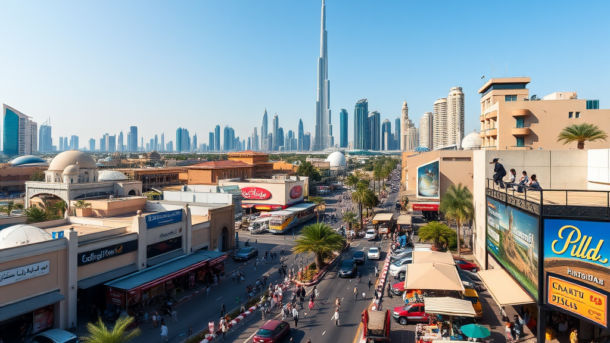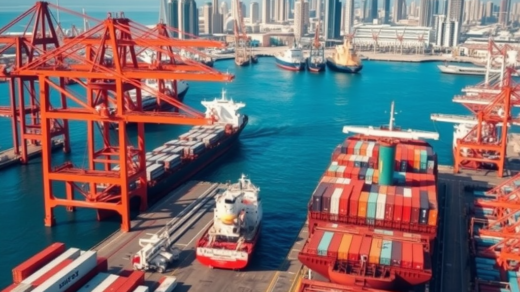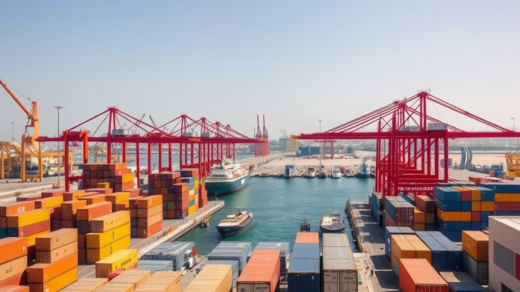In recent years, Dubai has captured the world’s attention, emerging as one of the most pivotal trade hubs in the Middle East. With its unmatched strategic location, world-class infrastructure, and progressive economic policies, Dubai is more than just a city; it is a thriving business metropolis that connects continents and facilitates international commerce. From historic trade routes to cutting-edge logistics solutions, this city has continually evolved, making it indispensable for global trade networks. The following sections delve into what makes Dubai exceptionally positioned to become the gateway to the Middle East, examining the interplay of various factors that have contributed to its remarkable ascent.
Historical Context
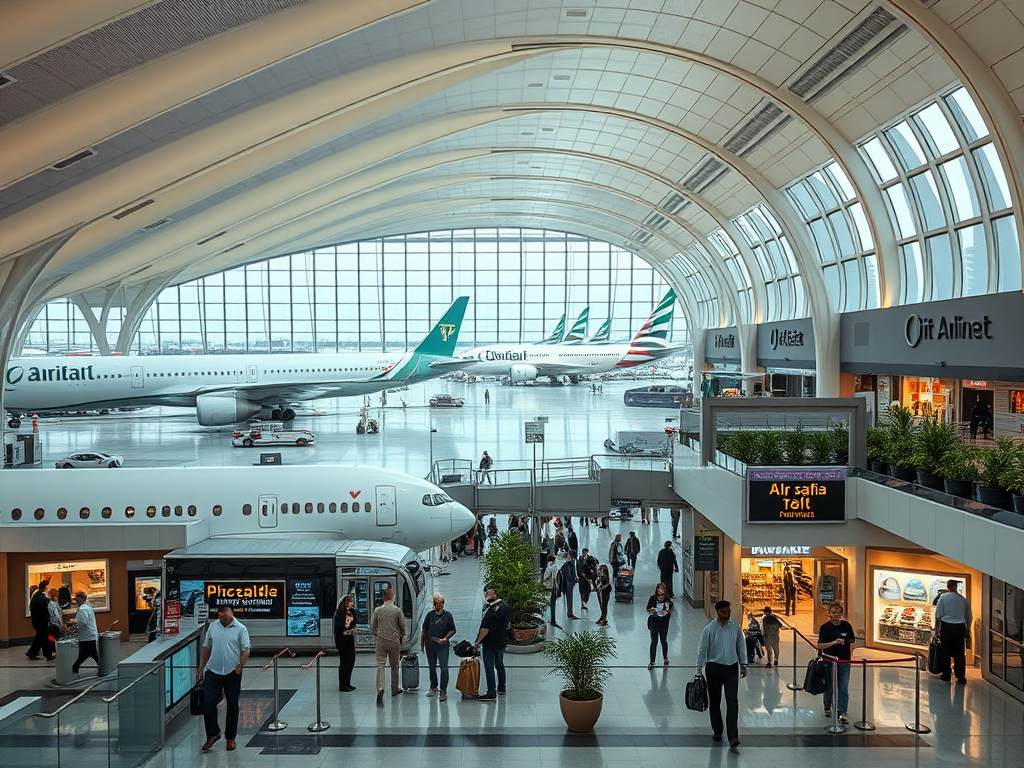
Dubai’s story as a trading hub began long ago. The city was originally a modest fishing settlement, primarily known for its trading routes across the Persian Gulf. From the late 19th century onwards, the establishment of free trade agreements and the discovery of oil in the 1960s transformed its economic landscape. Key developments, such as the initiation of the Jebel Ali Port in 1977, marked significant milestones that fueled trade expansion.
Efforts to diversify the economy from oil dependency have been ongoing since then. By promoting tourism and service sectors, Dubai successfully drew in international businesses looking for a base in the region. This historic journey reveals the city’s ambition to become a global leader in trade, and the groundwork laid over the decades has undoubtedly paid off.
Strategic Location and Infrastructure
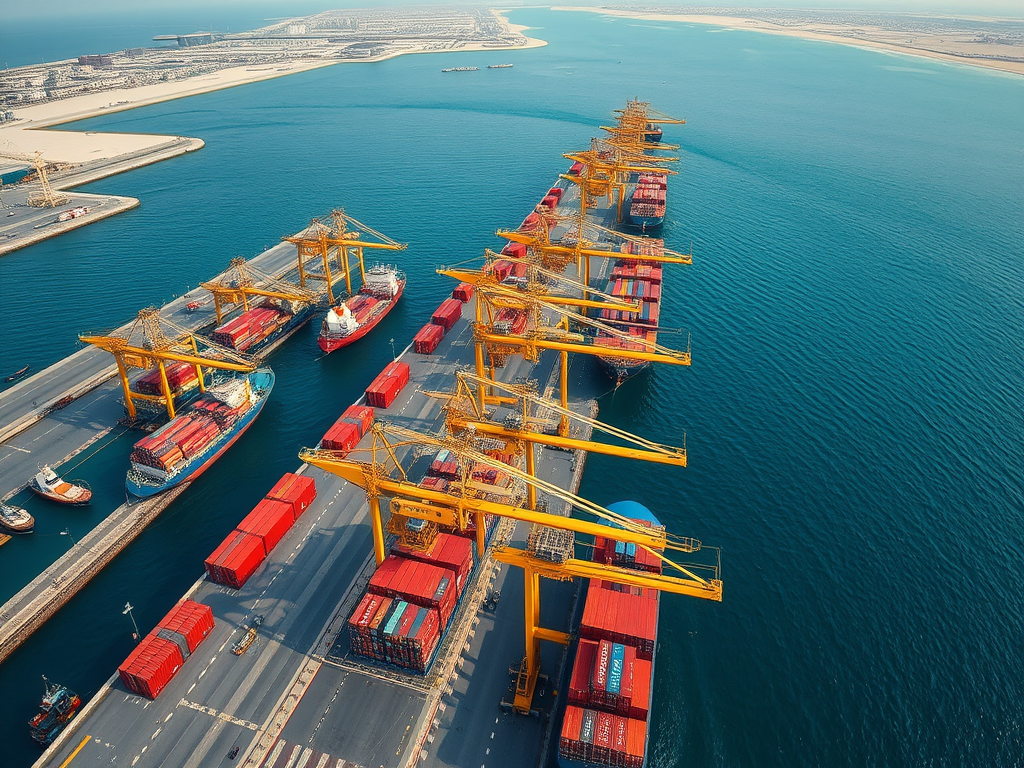
Dubai stands out for its geographical position as a nexus between Europe, Asia, and Africa. This strategic location is amplified by its well-developed infrastructure, crucial for facilitating trade. For instance, Dubai International Airport is one of the busiest airports in the world and serves as a vital transit point for global air freight.
The Jebel Ali Port is a prominent feature of Dubai’s trading infrastructure, allowing the seamless movement of goods in and out of the region. Another essential aspect of Dubai’s connectivity consists of its extensive network of roads and railways. This strategic positioning ensures efficient logistics, significantly reducing delivery times and costs for businesses.
| Infrastructure Element | Type | Capacity |
|---|---|---|
| Dubai International Airport | Air Freight | 88 million passengers annually |
| Jebel Ali Port | Maritime Freight | 19 million TEUs annually |
| Dubai Metro | Rail | 1.4 million riders daily |
Economic Diversification and Trade Policies
In an era where oil prices can be unpredictable, Dubai has made strategic decisions to diversify its economy. The emirate has successfully transitioned from an oil-reliant economy to a multifaceted one, showcasing robust growth across sectors like tourism, hospitality, and financial services. As a result, the city has attracted numerous international businesses seeking opportunities in these burgeoning sectors.
To encourage foreign investment, Dubai offers several attractive policies, including the establishment of various free trade zones. These zones have become magnet points for businesses of all sizes. The Jebel Ali Free Zone, for example, allows 100% foreign ownership and provides tax exemptions for up to 50 years. These structures form the backbone of Dubai’s thriving trade environment.
- 100% foreign ownership
- Tax exemptions and reduced custom duties
- Streamlined business setup procedures
Role of Technology and Innovation
As trade evolves in a digital age, technological advancements have also redefined the landscape in Dubai. The emirate has embraced e-commerce and digital platforms as integral components of its trade strategy. For businesses, this means improved logistics management and broader market reach, contributing to more efficient operations.
Furthermore, the Dubai government actively promotes innovative trade solutions through initiatives like the Dubai Smart City strategy. This includes the implementation of blockchain technology for enhanced transparency in trade processes. These efforts greatly improve the ease and efficiency of doing business in the region.
Global Events and Networking
Hosting global events has significantly bolstered Dubai’s standing as a key player in international trade. Expo 2020, despite being postponed, has positioned the city as a global stage for economic and cultural exchange. This event not only showcased Dubai’s achievements but also created opportunities for business collaborations and trade partnerships.
Additional networking platforms through conferences and exhibitions strengthen existing relations and introduce new opportunities. Event participants often leave with new contacts and business arrangements, further entrenching Dubai’s role in international commerce.
Challenges and Future Prospects
Despite its successes, Dubai faces several challenges in maintaining its trade dominance. Increasing competition from other Middle Eastern cities has emerged as a significant hurdle. Cities such as Abu Dhabi and Doha are also developing their own trade frameworks, which could divert an increasing share of business activities away from Dubai.
Future prospects, however, appear to be promising. Continued investment in infrastructure and a commitment to innovation will likely keep Dubai at the forefront of global trade. The government remains focused on enhancing existing frameworks while exploring new opportunities for economic growth and diversification.
Conclusion
Dubai has cemented its status as the gateway to the Middle East for global trade. Historical factors, strategic location, advanced infrastructure, economic diversification, and a commitment to innovation are just a few of the factors driving this remarkable success. As the emirate continues to adapt and respond to emerging global trends, it is poised to maintain its influential position in international commerce.
Frequently Asked Questions
- What factors contributed to Dubai’s emergence as a trade hub?
Dubai’s strategic location, excellent infrastructure, economic diversification, and supportive trade policies all played crucial roles. - How has technology influenced trade in Dubai?
Technology has streamlined logistics, facilitated e-commerce, and introduced innovative solutions for businesses operating in the region. - What challenges does Dubai face in the global trade market?
Competition from neighboring cities and regional instability are some of the challenges Dubai must navigate. - What role do global events play in Dubai’s trade strategy?
Hosting global events helps improve international relations, fosters trade partnerships, and enhances the city’s visibility as a trade hub. - What is the future outlook for trade in Dubai?
With ongoing investments in infrastructure and a strong focus on innovation, Dubai aims to solidify its position as a leading global trade hub.
